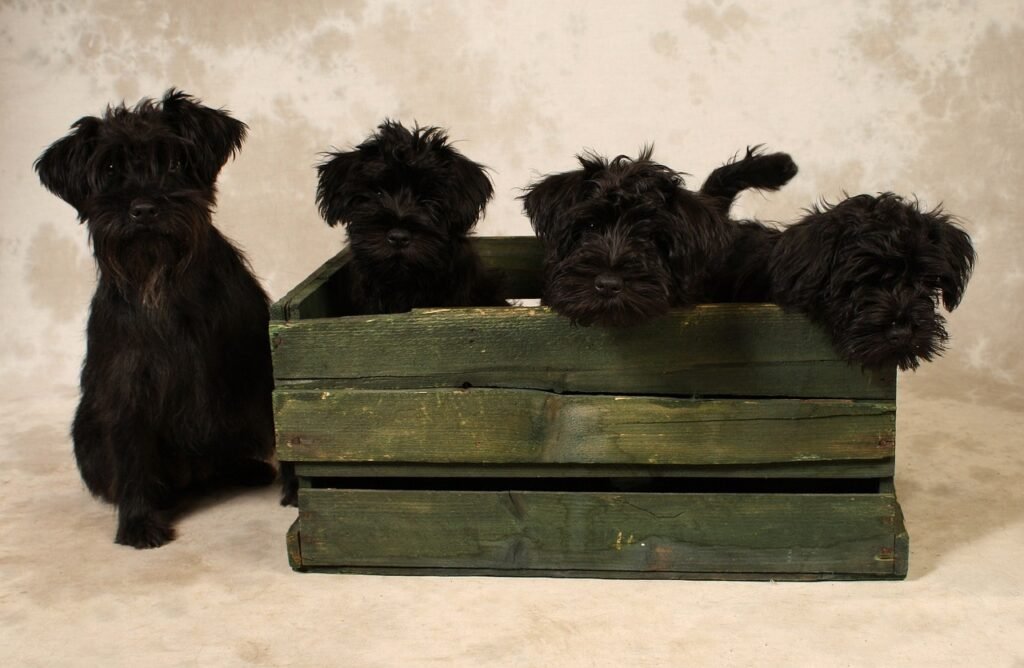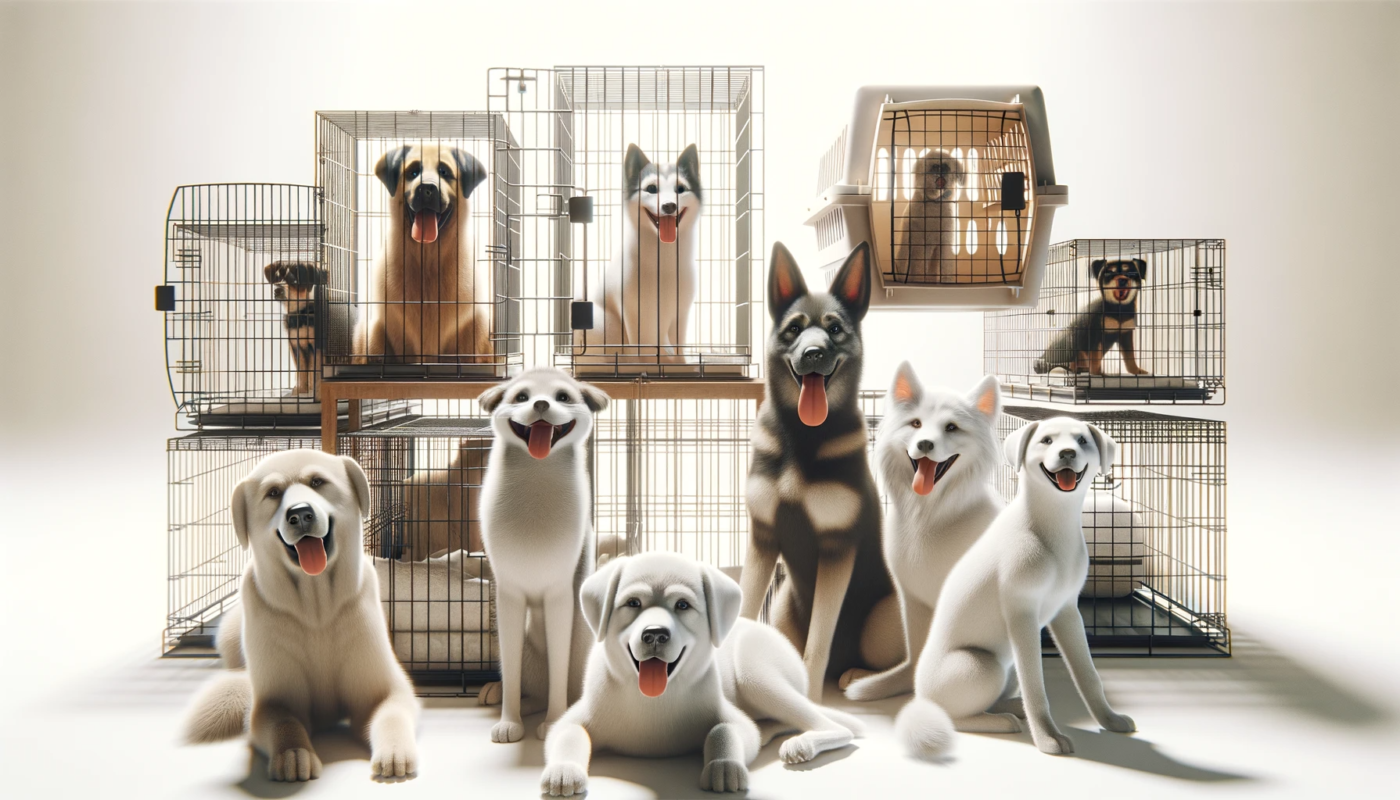
Finding the Perfect Medium Dog Crate Size
Welcome to the world of dog ownership! Whether you’re a new dog parent or looking to upgrade your furry friend’s crate, finding the perfect medium dog crate size is essential for your pup’s comfort and safety. In this article, we’ll explore the factors you need to consider when choosing the right crate size for your medium-sized dog, ensuring they have a cozy and secure space to call their own. Let’s dive in and find the perfect fit for your canine companion!
Have you ever wondered what the perfect size medium dog crate is for your furry friend?
Are you struggling to find the right size medium dog crate for your pup? In this article, we will help guide you through the process of selecting the perfect medium dog crate size for your beloved pet.

This image is property of pixabay.com.
Find products like these on Amazon!
Factors to Consider
When selecting a medium dog crate size, there are several factors to consider to ensure your furry friend is comfortable and safe.
Before purchasing a medium dog crate, you should take into account your dog’s breed, size, and behavior. Consider how much your dog will grow in the coming months or years to ensure the crate is a good long-term fit. The goal is to provide a crate that is cozy, yet spacious enough for your dog to move around comfortably.
Dog’s Breed
Dogs come in all shapes and sizes, so it’s important to consider your dog’s breed when selecting a medium dog crate size. Larger breeds like Boxers or Australian Shepherds will require a larger crate compared to smaller breeds like Chihuahuas or Dachshunds.
Consider the height, length, and weight of your dog to determine the appropriate size crate for their breed. You want to make sure the crate is large enough for your dog to stand up, turn around, and lay down comfortably.
Dog’s Size
In addition to your dog’s breed, its size plays a crucial role in selecting the perfect medium dog crate size. Measure your dog from the tip of their nose to the base of their tail for length, and from the top of their head to the ground for height.
This will help you determine the appropriate dimensions for the crate. Make sure to add a few inches to your measurements to ensure your dog has enough room to stretch out and move around comfortably.
Dog’s Behavior
Understanding your dog’s behavior is also important when choosing a medium dog crate size. If your dog is anxious or has a history of escape attempts, you may want to opt for a sturdier crate with secure locks.
On the other hand, if your dog is calm and well-behaved, a softer crate with breathable mesh fabric may be more suitable. Think about your dog’s needs and habits to ensure they feel comfortable and secure in their crate.
Crate Sizing Guidelines
To help you determine the correct size medium dog crate for your furry friend, here are some general guidelines to consider based on your dog’s measurements.
| Dog Size | Crate Length | Crate Width | Crate Height |
|---|---|---|---|
| Small | 24-30 inches | 18-24 inches | 21-24 inches |
| Medium | 30-36 inches | 21-26 inches | 24-27 inches |
| Large | 36-42 inches | 24-30 inches | 27-30 inches |
Keep in mind that these are just general guidelines and may vary depending on your individual dog’s size and breed. It’s always best to measure your dog and consult with your veterinarian if you have any concerns about crate sizing.
Length
When measuring your dog for crate length, start from the tip of their nose to the base of their tail. Add a few inches to this measurement to ensure your dog has enough room to stretch out comfortably.
Width
For crate width, measure your dog from shoulder to shoulder. Make sure the crate is wide enough for your dog to turn around without feeling cramped.
Height
To determine the crate height, measure your dog from the top of their head to the ground while they are standing. Add a few inches to this measurement to allow your dog to stand up without hitting their head on the ceiling.
Find products like these on Amazon!
Types of Medium Dog Crates
There are several types of medium dog crates available on the market, each with its own advantages and disadvantages. Here are some common types of medium dog crates to consider.
Wire Crates
Wire crates are popular for their durability and visibility. They allow for good airflow and are easy to clean. However, some dogs may find wire crates less cozy compared to softer options.
Plastic Crates
Plastic crates are lightweight and portable, making them ideal for travel. They offer a more den-like environment, which can help anxious dogs feel more secure. However, plastic crates may not have as much ventilation as wire crates.
Soft-Sided Crates
Soft-sided crates are lightweight and foldable, making them easy to transport. They are ideal for well-behaved dogs and indoor use. However, they may not be suitable for dogs who like to chew or scratch as they are less durable.
Heavy-Duty Crates
Heavy-duty crates are designed for escape artists and strong chewers. They are made of sturdy materials like steel and have secure locks to prevent breakouts. While heavy-duty crates are more expensive, they are worth the investment for dogs who need extra security.
Tips for Crate Training
Crate training is an important part of ensuring your dog feels comfortable and safe in their crate. Here are some tips to help make the crate training process smoother.
Start Slow
Introduce your dog to the crate gradually by placing treats or toys inside to encourage them to explore. Keep the door open initially to allow your dog to enter and exit freely.
Create a Positive Association
Associate the crate with positive experiences by feeding your dog meals inside the crate or giving them treats when they enter on their own. This will help your dog view the crate as a safe and comfortable space.
Use Positive Reinforcement
Praise and reward your dog for good behavior in the crate, such as staying calm and quiet. Avoid punishing or scolding your dog when they are in the crate as this can create negative associations.
Make it Cozy
Add a comfortable bed or blanket inside the crate to make it a cozy and inviting space for your dog. You can also include a few toys or chews to keep your dog entertained while in the crate.
Practice Patience
Every dog is different, so be patient and consistent with crate training. It may take some time for your dog to feel comfortable in their crate, so continue to praise and reward them for positive behavior.

This image is property of pixabay.com.
Final Thoughts
Finding the perfect medium dog crate size is essential for your dog’s comfort and safety. By considering your dog’s breed, size, behavior, and crate type, you can select a crate that meets your dog’s needs.
Remember to measure your dog accurately and consult with your veterinarian if you have any concerns about crate sizing. Crate training is a gradual process, so be patient and supportive as your dog gets acclimated to their new crate.
With the right medium dog crate size and proper training, your furry friend will have a cozy and secure space they can call their own. Happy crate shopping and happy tails!
Find products like these on Amazon!





-
-
7 days
Tagged dog crate, Easy-to-clean, Pet care, Size